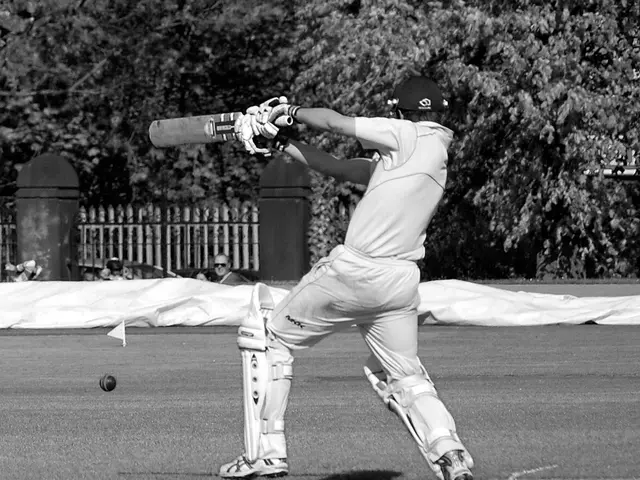SoCal rapper and YouTuber DDG temporarily taken into custody; suspected victim of swatting case.
In a recent incident, popular rapper DDG found himself at the centre of a potential swatting call in Castaic, California. The incident unfolded during a paintball tournament, where DDG was participating, when police surrounded him and other participants.
According to reports, DDG believed that someone had provided the Sheriff's Department with a description of his car, leading to the emergency response. The caller claimed that DDG was armed and was going to hurt himself and others. However, no weapons were found during the search.
Video footage on social media shows DDG being searched and placed inside a sheriff's vehicle. The rapper later posted on social media that he was involved in a swatting incident, alleging that police didn't provide any explanation for their actions and yelled at him to put his hands in the air.
Swatting calls, which involve making a false emergency call to provoke an armed law enforcement response, are a growing concern in California. These calls have caused panic and massive police responses, leading to the evolvement of laws to reflect the seriousness of this act.
California law includes penalties for false reporting of emergencies under California Penal Code Section 148.3, which can result in misdemeanor or felony charges, depending on the circumstances. Additionally, associated crimes, such as threats of homicide or use of emergency infrastructure to endanger others, can elevate charges to felonies, with longer prison terms.
Cases like DDG's swatting incident underscore the need for strong deterrents against such acts. California, like many other states, is considering or enacting modernized laws to specifically address the technological and safety challenges posed by swatting and similar harassment forms.
It's worth noting that the 18-year-old from Lancaster, California, has pleaded guilty to making 375 'swatting' calls throughout the U.S., highlighting the prevalence of this issue.
While the specific laws regarding swatting in California are evolving, it's clear that authorities are taking these incidents seriously and recognising their potential danger. For precise charges and penalty ranges, consultation of California Penal Code sections on false reporting and criminal threats is recommended.
- The increasing concern over swatting calls in California, as illustrated by the DDG incident in Castaic, has led to the development of stricter laws.
- California's Penal Code Section 148.3 outlines penalties for false reporting of emergencies, with charges ranging from misdemeanors to felonies, depending on the circumstances.
- Associated crimes such as threats of homicide or use of emergency infrastructure to endanger others can elevate charges to felonies, resulting in longer prison terms.
- The growing issue of swatting in California is underscored by the case of the 18-year-old from Lancaster, who pleaded guilty to making over 375 swatting calls nationwide.
- As these incidents pose a significant danger, authorities are taking them seriously, and California is enacting modernized laws to specifically address the challenges posed by swatting and similar harassment forms.






